Jean-Denis Bonan’s A Woman Kills (aka La Femme Bourreau, 1968) practically defies categorization in terms of genre, but one thing is for certain: it’s a film that until now very few have seen. Resurrected by Radiance Films a full five-and-one-half decades after its making and its initial failure to find distribution, A Woman Kills has been restored and re-released on a limited edition Blu-ray available February 7, 2023. Although Bonan’s film was regarded, even in the wake of the French Nouvelle Vague and Left Bank protests, as too strange, too outré, to earn distribution in 1968, it’s nonetheless a fascinating film, a hybrid/deconstruction of genre tropes and a cinematic expression of auteurist independence.
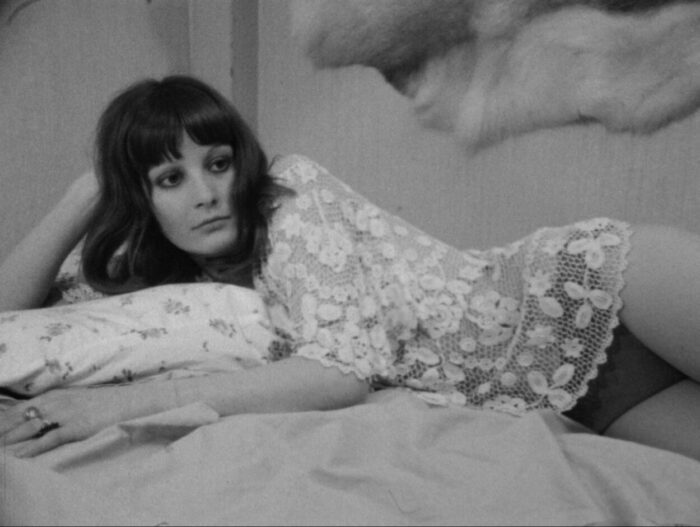
The Film
The plot of A Woman Kills, in its most basic narrative elements, is not too far afield from something like Hitchcock’s Psycho or other serial-murder investigations of the day such as The Detective (starring Frank Sinatra) or No Way to Treat a Lady (with Rod Steiger), to name two Hollywood vehicles of the same year similarly fixated on gender identity and psychosis. A Woman Kills begins with a series of prostitute murders panicking the Parisian public, who fear a serial killer on the loose. Hélène Picard, a prostitute, is sentenced and executed for the murders. Yet the killings continue, suggesting either Picard was not the murderer or, perhaps, the work of a copycat. As they undertake their investigation, two police officers—the executioner Louis Guilbot (Claude Merlin) and the detective Solange Lebas (Solange Pradel)—begin a tentative, hesitant relationship with each other.
As one lead after another dries up, Solange begins to question Guilbot’s increasingly odd behaviors and obsessions, ones which lead her to question her own safety. Guilbot, a former soldier traumatized by his battlefield experience, has begun a secret, double life. And from there, A Woman Kills calls into question Guilbot’s character, the competence of the law, and the very meaning of life itself, culminating in an extended chase-and-shoot sequence across Belleville alleyways and rooftops that resemble nothing if not a decaying urban dystopia.
While A Woman Kills is as explicit as they come, from its frank depictions of sexual transgressions to its unfettered violence, it’s not an especially gratuitous nor an exploitative film. It’s organized as a police procedural, but after its first act there’s little doubt about the identity of the killer; several scenes anticipate the erotic thriller tropes that would become popular a decade or more later, but the film doesn’t aim to be sexy; and finally, its extended dystopian finale resembles a post-apocalyptic science fiction, yet its setting is an unyieldingly harsh and contemporaneous present.
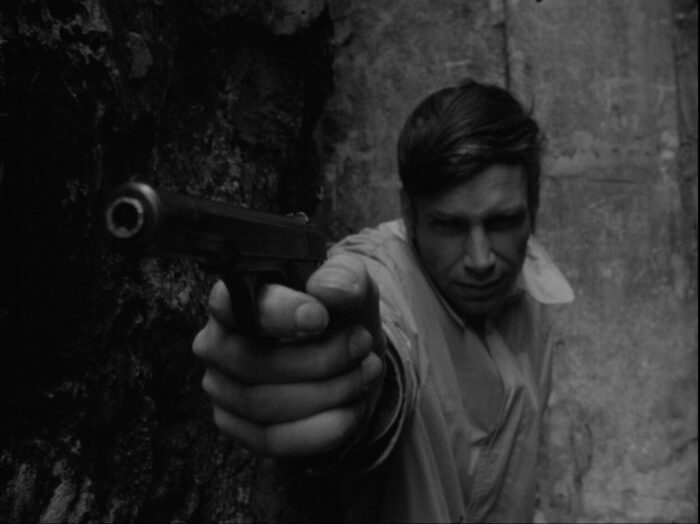
In short, A Woman Kills is sui generis, a film that borrows from several genres but belongs to none, and one that reviles even as it engages. Its take on transgenderism may be dated, but I hope no one looks to a film five decades old for modern insights into human sexuality. Stylistically, the cinematography adopts some of the freewheeling camera movement of Godard and Truffaut to the accompaniment of omniscient voice-over narration and a handful of songs inscrutably commenting directly on the onscreen action.
It may be easy to understand how even in the forward-thinking France of the late 1960s such a film might not find a willing distributor, but it’s nonetheless a revelation to watch A Woman Kills today. It’s a film that follows in the tradition of Psycho, provides an anarchic alternative to Hollywood fare of the day, and explores what it means to be human through a surprising and genre-disrupting narrative.
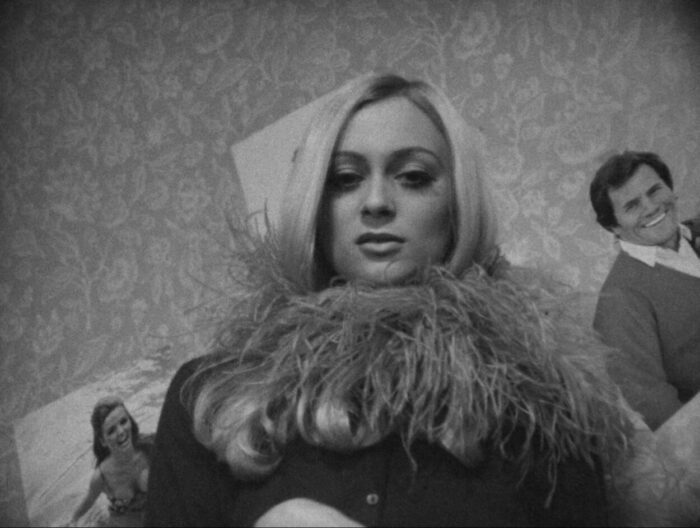
Luna Park Films first exhibited the film at the Cinémathèque de Lausanne in 2014, but Radiance Films’ Blu-ray edition is the film’s first release on physical media and the first opportunity for most audiences to view the film. With the original uncompressed mono PCM audio soundtrack, the re-edited 2K HD restoration of the film from its original 16mm print yields an image that is sharp, with noticeable film grain visible, and detailed. There are visible wear artifacts in the latter third of the film, but much of what remains appears pristine.
Special Features
Aside from the HD restoration of the film, Radiance Films’ Blu-ray includes several newly-produced and archival bonus features.
Audio commentary by critics Kat Ellinger and Virginie Sélavy
Ellinger, editor in chief of Diabolique Magazine and cohost of their Daughters of Darkness and Hell’s Belles podcasts, and Sélavy, founder and editor-at-large of Electric Sheep, the online magazine for transgressive cinema, engage in an informal and freewheeling discussion of the film’s historical context, generic tropes, and stylistic maneuvers. The two begin with a discussion of A Woman Kills‘ genre affiliations, especially helpful in that the film largely defies genre expectations while exploiting the tropes of the erotic thriller and police procedural. Theirs is an engaging and enlightening exchange throughout, highly recommended for a more thorough understanding of the film.
Introduction by Virginie Sélavy
Sélavy briefly contextualizes A Woman Kills as a genuine lost film of French cinema, unfinished and unreleased in 1968 and not seen until its rediscovery in the 21st century, highlighting the work of Bonan, his producer Anatole Dauman, and their other collaborations to create this film during the peak of student unrest. Five minutes; in English, with no subtitles available.
On the Margin: The Cursed Films of Jean-Denis Bonan
Directed by Francis Lecomte first in 2015 and with newly updated information and interviews, this delightful short documentary featurette is highlighted by an extended conversation with director Jean-Denis Bonan himself, followed by shorter exchanges with cinematographer Gérard de Battista, editor Mireille Abramovici, musician Daniel Laloux, and actress Jackie Rynal.
Bonan describes his films as an attempt to escape French society, a theme throughout his work, but especially prevalent in the “never-ending” pursuit that concludes A Woman Kills. Bonan is a delightful interview subject, expressively animated and enthused as he describes work he undertook nearly a half-century ago and had not seen since, sharing both archival photographs and workplace anecdotes from his time collaborating with Dauman and cinematographer Gérard de Battista in particular.
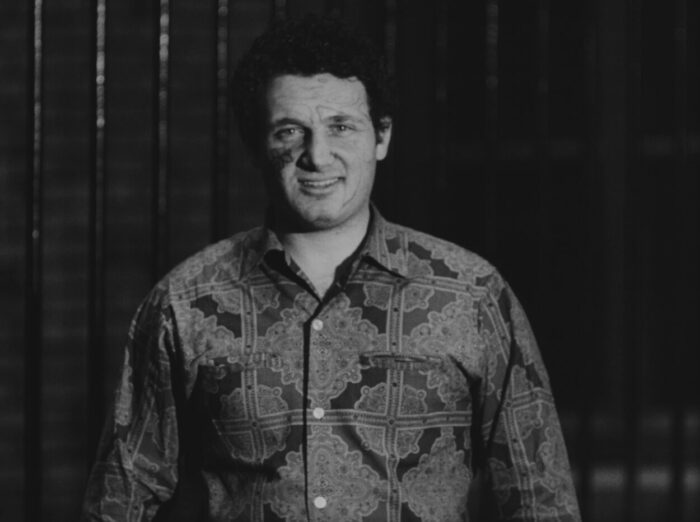
Keep in mind that Bonan is a filmmaker whose sensibilities extended to shooting a scene in which patrons at a high-society dinner literally ate sh*t off plates to serve as a visual metaphor for, well, eating sh*t. Bonan’s other recollections include the events of 4 May 1968, the financial support of Jean-Luc Godard, and the ultimate failure of A Woman Kills to secure distribution. The main problem, Bonan, recalls, is not that the film was unrelentingly explicit in its sexuality and violence nor that it was disturbing in its themes; for Bonan, it was that the film was impossible to categorize. Neither a crime film, nor an erotic thriller, nor a star vehicle, A Woman Kills was one that distributors simply couldn’t fathom, and so it went unreleased and unseen for decades.
As gregarious and loquacious as Bonan is in describing his own rejections and disappointments, I do wish the Bonan interview itself had been shot with at least a little care (or a B-cam). The other interviews are shot, at least, with a little more attention to framing and lighting. Composer Daniel Laloux calls Bonan, perhaps not inaccurately, and neither for the first nor the last time, “cursed.” 37 minutes. In French, with English subtitles.
Et Cetera
Other features on the disc include several short and fascinating films by Donan that trace his aesthetic up to A Woman Kills: The Short Life of Monsieur Meucieu / La vie brève de Monsieur Meucieu (1962, 13 mins); rushes from A Crime of Love / Un crime d’amour (1965, 6 mins); Sadness of the Anthropopagi / Tristesses des anthropophages (1966, 23 mins), the surreal, scandalous work of sacrilege (and sh*t-eating, among other repulsions), that enraged the French censors so much they banned it even from export; Crazy Mathieu / Mathieu-fou (1967, 18 mins); and A Season with Mankind / Une saison chez les hommes (1967, 16 mins), as well as the film’s re-release trailer (see below).
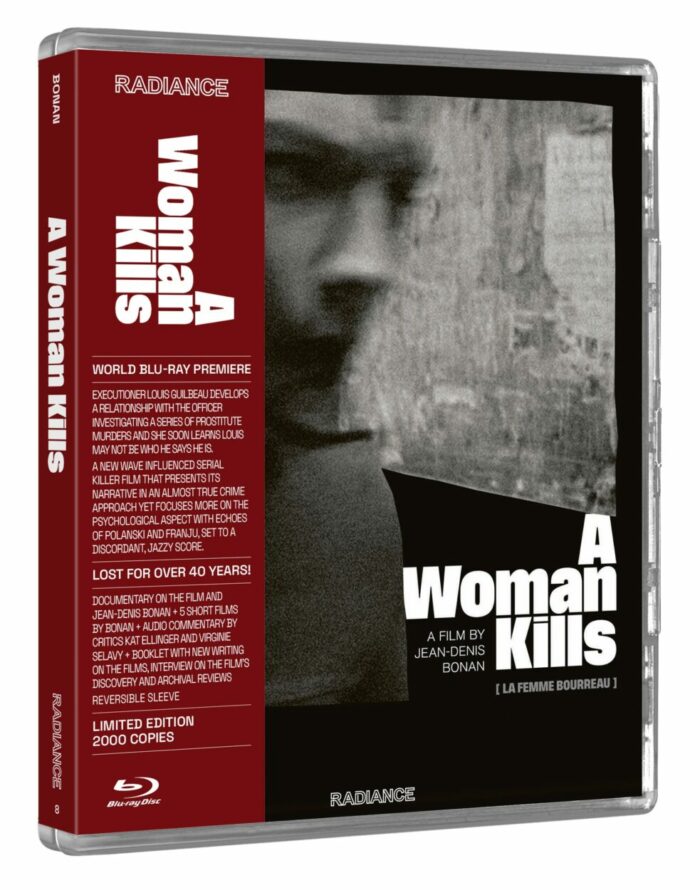
The packaging includes a reversible sleeve featuring original and newly commissioned artwork by maarko phntm as well as a limited edition booklet featuring new writing on the film by author and scholar Catherine Wheatley; writer and broadcaster Richard Thomas on the short films; Cerise Howard on gender identity tropes in A Woman Kills and the horror film; an interview with Francis Lecomte, the French distributor who rescued the film; and newly translated archival reviews and film credits.
Of these, Howard’s essay is the most enlightening, bringing a trans perspective to the unfortunate narrative tradition begun by the otherwise-excellent Psycho: that of conflating gender confusion and/or non-binary identity with murderous psychopathy. Following Hitchcock, Jonathan Demme’s Silence of the Lambs and Brian de Palma’s Dressed to Kill also featured gender-nonconforming antagonists as maniacal killers—a trope A Woman Kills (despite its misleading title) similarly employs, though to a greater ambiguity than these. Howard deftly traces the horror genre’s inherent queerness in these and other films from a trans perspective too rarely heard.
All of the written materials, though, have their purpose, together connecting the dots of this long-lost and nearly-forgotten film, one that sat unfinished in an archive for decades before finally seeing the light of day. Radiance’s limited edition Blu-ray of A Woman Kills brings Bonan’s film fantôme back to life for a new generation of cinephiles and scholars.
A Woman Kills is available to purchase February 7, 2023 on Radiance Films Blu-ray.




